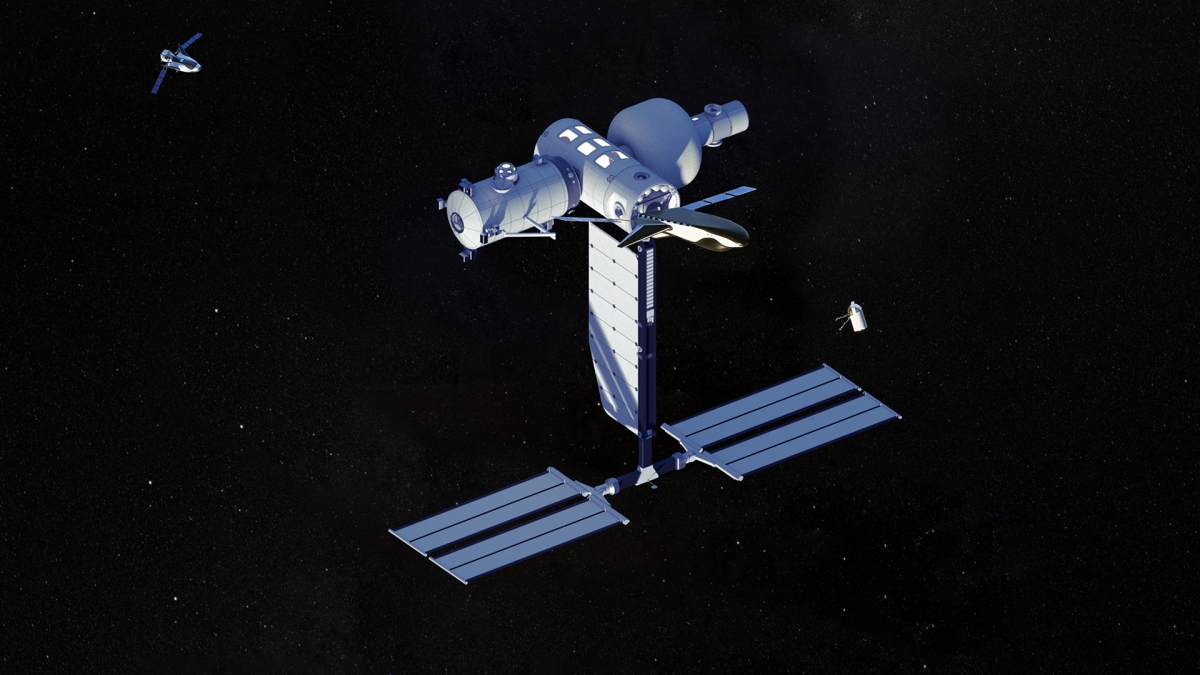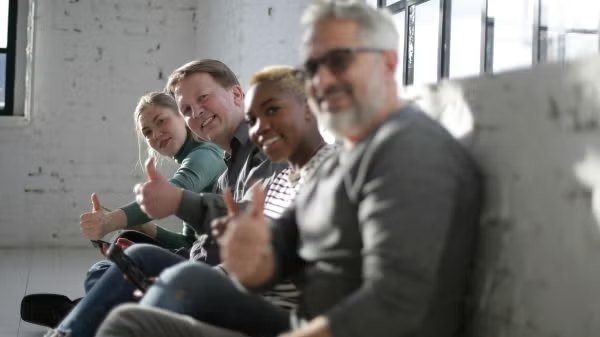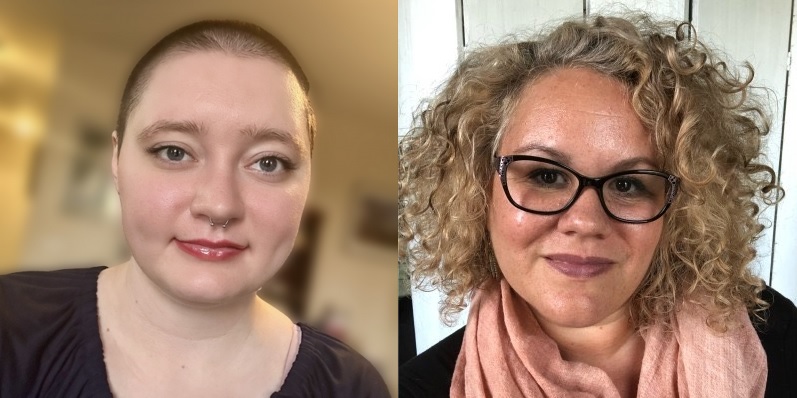ASU Online students contribute to Interplanetary Initiative research

Photo courtesy Orbital Reef
There’s a whole new world of undergraduate research opportunities available to online students thanks to the Online Undergraduate Research Scholars (OURS) program from The College of Liberal Arts and Sciences and EdPlus. The Interplanetary Initiative is one of several units supporting ASU Online students to grow academically and professionally by providing group-based research opportunities and mentorship.
This fall, the Interplanetary Initiative supported 18 online students working across six of its interdisciplinary research projects. Their research spans topics from bringing Mars down to Earth to using space for promoting peace.
Annika Diaz, who is double majoring in sociology and women and gender studies, works on the JEDI (just, equitable, diverse, and inclusive) Space project.
“What drew me to the opportunity is the fact that it was based around two of my interests, one being space, which was the most eye-catching. But also that it had to do with diversity, equity, inclusion and accessibility, which is the focus for both of my degrees,” Diaz said.
Emulating the interdisciplinary nature of these research projects, the online students participating this semester represent 11 different ASU majors — from astronomical and planetary sciences to anthropology and the Interplanetary Initiative’s own technological leadership degree.
Alby McInnis, a senior graduating this summer with a degree in family and human development, is also working on the JEDI Space project.
“I did not realize that there were so many opportunities for someone in a soft science like I am to work in the space sector. This opened my eyes up to the fact that there is so much more to working in space than astronauts,” McInnis said.
Together, Diaz and McInnis have gotten the opportunity to collaborate with the Orbital Reef University Advisory Council to compile research for a white paper on how diversity, equity, inclusion and accessibility can be implemented as a continuous integrated process in space and on Earth.
Alby McInnis (left), a senior graduating this summer with a degree in family and human development, is working on the JEDI Space project. Mariah Maury, who is graduating this semester with a degree in political science, works on the Preventing Space War project. Photo courtesy Alby McInnis and Mariah Maury, respectively
Each research project is made up of a group of ASU faculty, graduate students and industry professionals. The students taking part in this research experience work in concert with the rest of the group to provide input and research support.
“The project leads are very passionate about what they’re doing, and they’re very welcoming and understanding if you have any questions. You can tell that their whole goal is to make it feasible for everybody to be involved,” said Bianca Michaud, a senior physics major, who is working on the Global Space Tech project.
“I felt like my comments and input were met with an open ear. I had some critical feedback, which made me look at the situation differently while still welcoming me to add or move the project in a different direction,” said Mariah Maury, who is graduating this semester with a degree in political science. She works on the Preventing Space War project.
The unique opportunity for online undergraduate students to be able to do research has been a huge draw to participants.
“I have never heard of a college doing undergrad research remotely. Overall, it was a lot more feasible than I anticipated it being because when things start transitioning to the online modality, you really have no idea how it’s going to go. Being in research professionally right now, I know it’s extremely difficult to get into the field of research, and it is paramount to be able to do this,” said Michaud.
For future opportunities to get involved in Interplanetary Initiative research, email interplanetary@asu.edu or subscribe to the initiative's newsletter.
More Science and technology
Statewide initiative to speed transfer of ASU lab research to marketplace
A new initiative will help speed the time it takes for groundbreaking biomedical research at Arizona’s three public universities…

ASU research seeks solutions to challenges faced by middle-aged adults
Adults in midlife comprise a large percentage of the country’s population — 24 percent of Arizonans are between 45 and 65 years…

ASU research helps prevent substance abuse, mental health problems and more
Smoking rates among teenagers today are much lower than they were a generation ago, decreasing from 36% in the late 1990s to…


